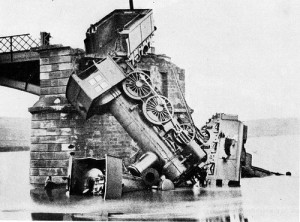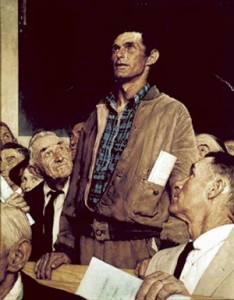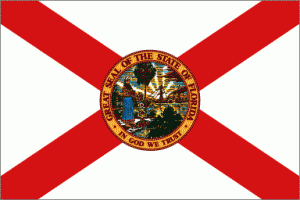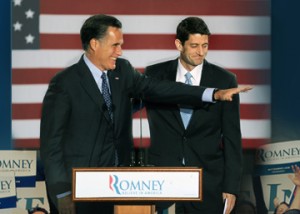What About Paul?
September 4th, 2012 // 12:19 pm @ Oliver DeMille
I got a lot of responses to my article on why everyone should vote. Most were in agreement, and readily shared it on social media. Of those who took exception, the concerns they expressed boiled down to two main thoughts:
1. What about Ron Paul?
2. But Romney’s not really for limited government!
Both have real merit.
1. What About Paul?
First, I think Ron Paul is a great man, and I have been a fan of nearly all his suggestions and policies since I first read a book by him clear back in, I think, the 80’s. He is right about so many things. I have a few disagreements with him too, but less than with the two major candidates.
As you will note from my article, my main point was that everyone should vote, and if you don’t like the main candidates then write in a name. If this is your plan, I think Ron Paul is an even better write-in than those I suggested in the article (mostly tongue-in-cheek, as I did not want to promote a particular candidate per se). My point was to vote, but to be aware that a write-in vote is more for being able to argue your case for good government over the next four years than for actually swaying the election. A vote for Ron Paul does just that.
If you want to sway the election, do two things: first, already be a voter in a swing state, and second, vote for one of the main candidates. If you don’t meet these requirements or don’t want to vote for either major candidate, by all means, write someone in.
2. But Romney’s not for Limited Government!
Second, presidential politics always come down to imperfect votes. If you want a perfect candidate, look to your House of Representative election and get a candidate that is truly ideal to your wants. If there isn’t such a candidate, you’ve got two years to help find one and help him/her get elected.
That said, for those who don’t think Romney is much of a limited government candidate, I have two words for you: Barack Obama.
President Obama has shown that he is a committed big-government president, and the next four years under an Obama Administration will be a massive move to bigger government, more regulation, etc. If you want the bigger government choice, vote for Obama. If you want a possibly limited, but definitely more limited than Obama, government, I have two words for you: Paul Ryan. We need major fiscal responsibility, and soon. If that’s what you want, you have two choices: Romney/Ryan, or a write in candidate to make a statement, but not actually derail the Obama candidacy. That said, there is a great American tradition of protest voting.
If you are in a swing state, your vote could decide the election. Do you want bigger government? Vote Obama. Do you want a growing government in the Bush/Bush style, possibly better but maybe not, but not massive growth Obama government: vote Romney/Ryan. Do you want real limited government: get seriously involved in getting the right House of Representatives in, now or in 2014, and decide whether Romney/Ryan is a good start in your mind or if a protest vote that says “Reagan or Bust” is better.
***********************************
 Oliver DeMille is the chairman of the Center for Social Leadership and co-creator of Thomas Jefferson Education.
Oliver DeMille is the chairman of the Center for Social Leadership and co-creator of Thomas Jefferson Education.
He is the author of A Thomas Jefferson Education: Teaching a Generation of Leaders for the 21st Century, and The Coming Aristocracy: Education & the Future of Freedom.
Oliver is dedicated to promoting freedom through leadership education. He and his wife Rachel are raising their eight children in Cedar City, Utah.
Category : Blog &Citizenship &Current Events &Government &Independents &Politics &Statesmanship
Why Bother? A Diatribe on Voting
September 1st, 2012 // 10:19 am @ Oliver DeMille
A friend emailed me with concerns about friends and acquaintances from her community who say they find both candidates, um….lacking.
I’ve heard this now from several people, and I think it deserves consideration. Specifically, I have four thoughts:
1. It’s not about the president. Much.
 First, even if you don’t vote for president, the Congressional, state and local elections are going to drastically impact the future of our economy during the next ten years.
First, even if you don’t vote for president, the Congressional, state and local elections are going to drastically impact the future of our economy during the next ten years.
Nobody will escape the consequences of this election, nor the coming decades’ economic ups and downs. No matter who wins the White House, the Congress is going to decide if we go into massive decline or real recovery.
This is not hyperbole, and I truly mean it in a literal sense.
This is because Congress will determine the tax policy, borrowing, budget and business opportunity policies that will make or break our economy in the short term. Many have referred to a coming figurative train wreck in Washington; it doesn’t seem too far-fetched anymore to suggest that the headlights are appearing on the horizon and the ground is starting to rumble.
This election may be the most important one in our lifetime, given what’s at stake for the economy.
So VOTE!
2. Ain’t No Such Thing
There is no such thing as a “no” vote in a presidential election.
Why? Because not voting is a vote for the incumbent. That’s why the incumbent in any election has a slight edge – by already being in office.
More people vote when they want change, while those who are happy or complacent with the status quo are less likely to go vote. If you are happy and complacent, by all means: don’t vote (i.e. vote for the incumbent).
Now, if you live in Wyoming (where the vote will certainly be for Romney) or New York (where Obama will definitely win) this is mitigated somewhat; but in the swing states, a “no” vote in 2012 is a vote for Obama.
If that’s fine with you, then fine. As long as you understand that when you boycott an opportunity to vote, it’s not a repudiation of both candidates; it’s an Obama vote.
By the way, the swing and possible swing states in 2012 include:
- Florida
- Michigan
- Ohio
- West Virginia
- Colorado
- Nevada
- New Mexico
- Wisconsin
- Illinois
- Indiana
- Iowa
- Minnesota
- Missouri
- North Carolina
- Pennsylvania
- Virginia
And a dozen others could swing.
3. Show Some Spunk.
If you’re one who strongly dislikes both candidates and really can’t swallow the taste in your mouth to vote for one of them, at the very least be a Rascal or a maverick and write someone in. Write in someone who you think could do better than either of the big-party candidates, and you’ll be able to tell people for the next four years how your candidate would have solved every crisis that arises. Of course, there will be no way to verify this, but it will open the door for a lot of stimulating conversations.
Besides, it’s fun — and educational — to tell your friends (and especially your kids and grandkids) why you voted for some non-candidate who you consider a great and promising leader. Don’t embarrass the leader by actually launching an unofficial campaign in his name. Just vote for him/her. Then, when you tell your kids you voted for Will Smith or Elizabeth Hasselbeck or Tim Tebow, they’ll listen as you explain why. Take the opportunity to teach them something important about freedom and leadership.
Or, when they ask who you voted for, you can say, “Uh…well, nobody.” You might as well tattoo the word “LOSER” on your forehead.
4. But Seriously…
 Finally, in all seriousness, the two candidates (warts and all) stand for two different things. One stands for Big Government Helping People and the other for Limited Government and Free Enterprise Helping People.
Finally, in all seriousness, the two candidates (warts and all) stand for two different things. One stands for Big Government Helping People and the other for Limited Government and Free Enterprise Helping People.
The future of these two visions goes in very different directions.
Take a stand and pick one!
Oh, and Jackie: Thanks for a really great question; I hope this helps you address the issue in your community…
Category : Blog &Citizenship &Current Events &Government &Politics
The Turning Point of the Election
August 22nd, 2012 // 7:43 am @ Oliver DeMille
 Based on the current breakdown of the electoral vote, if President Obama wins Florida, he’ll win the election.
Based on the current breakdown of the electoral vote, if President Obama wins Florida, he’ll win the election.
Governor Romney would have to carry every other battleground state if he loses Florida.
Similarly, if Romney wins Florida, he’ll take the election.
We’ve always known that the election would be determined by a few battleground states, but it has now come down to two states: Ohio and Florida.
And Ohio only counts if the candidate who loses Florida is able to win all the other battleground states.
It appears that as goes Florida, so goes the election.
Let’s consider a few thoughts about this.
First, while the 2012 Democratic Convention will be held in North Carolina, the Republican Convention will be in Tampa, Florida.
“All politics is local,” Tip O’Neill said, and the energy of the national convention in Florida is an advantage for Romney.
The popularity of Jeb Bush and Marco Rubio in the state also benefits the Republicans.
Second, however, Florida is a swing state precisely because it is too close to call.
There are at least three contested voting groups that both sides are courting: the Latino vote, seniors, and transplants from New York and New England.
All three have natural leanings toward the Democratic Party, and President Obama is a talented politician who knows how to effectively appeal to targeted constituencies.
Expect him to actively attract all three in the weeks ahead, and for the Romney-Ryan ticket to attempt the same.
Third, Israel could be a tipping point in this vote.
There is significant support for Israel in Florida, not only among conservatives but also from seniors and Northern transplants.
Washington insiders during the past week have been floating the rumor that Israel may be planning a military action against Iran—timed close to or during one of the 2012 conventions in order to give pro-Israel Romney a chance to speak directly in support of Israel and simultaneously make it more difficult for Obama to take a strong stance against the Netanyahu government.
Fourth, Obama handily won Florida in 2008, carrying a majority of the female vote and a large majority of minority voters.
The Romney-Ryan ticket is playing from behind in both Florida and Ohio, and the election may well be determined by which party organization generates the biggest voter turnout on November 6.
People typically have a sense about an upcoming election, based on the views and thoughts of those around them.
In red states, the overwhelming support for the Republican candidate convinces most that the election results are all but determined in their favor.
People in blue states are persuaded that the Democratic contender has a huge lead.
In reality, the election of 2012 could well come down to a few votes in a few Florida counties.
But before we have recurring dreams of hanging chads and the Supreme Court joining the election, we should remember that the one sure rule of presidential politics is to expect the unexpected.
***********************************
 Oliver DeMille is the chairman of the Center for Social Leadership and co-creator of Thomas Jefferson Education.
Oliver DeMille is the chairman of the Center for Social Leadership and co-creator of Thomas Jefferson Education.
He is the author of A Thomas Jefferson Education: Teaching a Generation of Leaders for the 21st Century, and The Coming Aristocracy: Education & the Future of Freedom.
Oliver is dedicated to promoting freedom through leadership education. He and his wife Rachel are raising their eight children in Cedar City, Utah.
Category : Blog &Current Events &Featured &Government &Politics
A Choice Election
August 15th, 2012 // 8:08 pm @ Oliver DeMille
(And a proposal for a Cable TV Debate between Barack Obama and Paul Ryan)
 With the selection of Paul Ryan as the Republican vice presidential candidate, Mitt Romney turned the 2012 campaign into a Choice Election.
With the selection of Paul Ryan as the Republican vice presidential candidate, Mitt Romney turned the 2012 campaign into a Choice Election.
This is rare in modern times.
The norm has been for Republican candidates to stay centrist—this pattern was followed by Bush, Dole, Bush and McCain.
Not since the Reagan-Carter contest have we seen a true Choice Election, where the sides are clearly divided and both passionately appeal to their base instead of tacking to the center.
Senator McCain may have attempted to create a Choice Election in 2008 with his selection of Governor Palin as running mate, but it appears Ryan’s fiscal conservatism may resonate more with independent voters than Palin’s social conservatism.
Romney’s choice also signaled two departures from his campaign to date.
First, it was bold and risky, which hasn’t been his m/o so far in this election.
Second, it was a significant move toward a big, overarching vision of American greatness.
The Romney message isn’t yet Reaganesque, but it seems to be at least trying to head in that direction.
Ryan’s budget proposals in the past few years have made him a controversial figure, and his inclusion on the ticket may signal that Romney has decided to go all in.
The choice couldn’t be clearer: The Obama/Biden message is that an increasing number of people are dependent on government, and that Washington simply can’t let them down—therefore, it must raise taxes on the rich and increase regulation on business.
If it wins, it will finally be able to do this on the grand scale, in the U.S. and internationally.
This worldview considers government the arbiter of fairness and often feels that government jobs are more honorable than those in private enterprise.
The Romney/Ryan view is precisely the opposite: Free enterprise is the hope of the future and America needs to rekindle its belief in limited government spending, minimal regulation, and a more business-friendly environment that encourages private-sector economic growth.
This agenda affirms that Washington has a spending problem, and that government’s immediate focus must be getting our financial house in order and incentivizing business growth.
The common wisdom on the Right is that our nation is on the verge of significant decline, and that major financial and policy changes in Washington are desperately needed.
The Left generally feels that our economic struggles were brought on by weak government policies that allowed the “haves” to exploit the “have nots,” that far too many people are hurting right now, and that only government stands between them and even more widespread failure.
Here is how this all plays out.
Most conservatives will vote Republican, and most progressives will support the Democratic ticket.
As we’ve discussed in the past, the election will be determined by independent voters in the battleground states.
But the fact that this is now a true Choice election puts a different spin on the vote.
If independent voters in the swing states see America at a crossroads, on the verge of serious decline and in need of big, difficult changes to reboot our economy, create huge private-sector growth and compete with China, the Republican ticket will win.
Romney was clearly banking on this when he selected Ryan as his partner.
But if swing voters think the ideas of decline and a looming major financial emergency are overblown, they’ll opt for another four years of President Obama.
Most voters—Republican, Democrat and swing—generally support getting our fiscal house in order, but they don’t want to give up any specific government programs that benefit them directly (e.g. entitlement changes).
A Choice Election is emerging on two fronts.
First, as mentioned, one side wants to increase the size and scope of government to help more people in need, while the other promises to reduce spending, taxes, regulation and effectively revive the economy (whether it will actually do so once in office is a different topic).
Secondly, Republicans see an American electorate ready to take drastic steps in the face of imminent decline and the threat of our nation going broke, even as Democrats are betting that people are more concerned with maintaining their government benefits.
In short, one side sees Paul Ryan as an excellent choice and the other thinks Romney has made a fatal (if welcome) mistake with this selection.
The choice is stark, and only time will tell how independents in the swing states actually vote.
So far the Obama campaign has played the small game, focusing on Romney’s tax returns, offshore accounts, and attacks on his work at Bain, and now criticizing details of Ryan’s budgets.
Romney has opened a big issue campaign, and he will likely escalate with a full-blown vision of American greatness.
But Barack Obama has proven to be an able politician with an uncanny sense of timing, and savvy Americans expect his Carteresque tactics to evolve into a Clintonian crescendo in the weeks ahead.
President Obama frequently seems to bumble along, only to strike with a lightening success in things like passing Obamacare, taking out bin Laden, or making unexpected announcements that win him the loyalty of various groups from immigrants to women to supporters of same-sex marriage.
Expect at least two Obama surprises before November 6.
Indeed, three or four wouldn’t be shocking.
If Romney waits around and reacts to such surprises, he’ll get stuck on the defensive.
To win, the Republican ticket needs to go big, really big, as quickly as possible.
And neither side can afford to let the debates determine their momentum.
Frankly, I think I speak for most political watchers when I say there should be an Obama-Ryan debate.
It would be a top seller on Pay-For-View.
Charge $29.95 per watcher, have Chuck Norris and George Clooney moderate the event, and apply the profits to paying down the national debt.
The band One Direction can open for each debate, thus ensuring that nearly every home in America with young girls signs up and reduces our deficit.
Better still, hold three such debates Lincoln-Douglass style in the most contested battleground states.
Then have a fourth swing-state debate where Obama and Romney face off and we measure them against each other as the leaders of our future.
This last event will be high drama after the guaranteed fireworks of the first three.
This election is still up for grabs, but it is a very different election than appeared to be shaping up last spring.
The Supreme Court decision on Obamacare and now the Ryan selection have made it a real Choice, and an American crossroads is certainly ahead.
Whatever your political views, the stakes could hardly be higher.
***********************************
 Oliver DeMille is the chairman of the Center for Social Leadership and co-creator of Thomas Jefferson Education.
Oliver DeMille is the chairman of the Center for Social Leadership and co-creator of Thomas Jefferson Education.
He is the author of A Thomas Jefferson Education: Teaching a Generation of Leaders for the 21st Century, and The Coming Aristocracy: Education & the Future of Freedom.
Oliver is dedicated to promoting freedom through leadership education. He and his wife Rachel are raising their eight children in Cedar City, Utah.
Category : Blog &Current Events &Featured &Government &Independents &Leadership &Politics
Understanding the President
August 13th, 2012 // 11:43 am @ Oliver DeMille
 One way to understand current events is to take a long view of the major historical trends at play, and another is to clearly define the systemic forces that influence what is going on.
One way to understand current events is to take a long view of the major historical trends at play, and another is to clearly define the systemic forces that influence what is going on.
A third is to learn about the character of the leaders who shape policy and especially those who have the power to make decisions that change society.
This third method may be the least accurate at predicting the years ahead, but it is often the most interesting of the three.
David Maraniss has helped Americans understand the character of our current President in his new book, Barack Obama: The Story.
Maraniss is a Pulitzer Prize-winning biographer, and he tells us several key traits that help us understand our top executive.
For example, according to Maraniss, Barack Obama is loathe to take risks until he has thought through every detail.
As a result, he avoids taking many risks, but often ends up taking a big risk when time runs out and he must act.
Thus his presidency has consisted of few singles or doubles, to use a baseball analogy, but a few well-placed homeruns such as passing health care and executing Osama bin Laden.
This methodology gives his critics evidence of a president lacking in consistent leadership and bungling too many things as the months pass, and it provides his supporters with a list of significant successes that only a truly top achiever could attain.
Thus the critics brush away his homeruns as anomalies, while his supporters see the months where little is accomplished as prelude to great strokes of leadership.
***********************************
 Oliver DeMille is the chairman of the Center for Social Leadership and co-creator of Thomas Jefferson Education.
Oliver DeMille is the chairman of the Center for Social Leadership and co-creator of Thomas Jefferson Education.
He is the author of A Thomas Jefferson Education: Teaching a Generation of Leaders for the 21st Century, and The Coming Aristocracy: Education & the Future of Freedom.
Oliver is dedicated to promoting freedom through leadership education. He and his wife Rachel are raising their eight children in Cedar City, Utah.
Category : Blog &Book Reviews &Current Events &Government &Leadership &Politics











